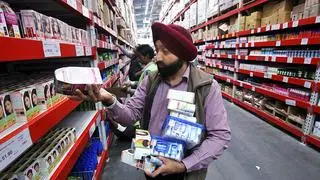Senior Economic Advisor and Additional Secretary in the Ministry of Finance HAC Prasad is now on a mission collating details for a report to be submitted to the new Government on the issues plaguing the export sector.
After collecting the views of exporters and industry stakeholders across 7 or 8 centres across the country, Prasad met the exporting fraternity here. ‘We will be going to Vishakapatnam next week, after which we get the report ready. It should be ready within the next fortnight,” he told Business Line , without divulging the views received from exporters in the other centres.
The exercise is aimed at helping the government prepare an industry-friendly export policy.
Recapping the developments, he said “projections show that the world output and economy could improve to 3.6 per cent and 3.9 per cent in 2014-15. Even India and China are expected to do better in the coming years. But whatever policies are taken, growth cannot improve if the world situation does not improve.’
“The WTO negotiations are going at snail’s pace. We, therefore, have to depend on FTAs (Free Trade Agreement) and RTAs (Regional Trade Agreement). These agreements are confusing. We will have to do a reality check of the FTAs in the coming months and see which would be beneficial for India,” Prasad said.
While on the subject of FTAs and RTAs, he said “the Transatlantic FTA is going to be the next big issue. India would be nowhere in the picture, as this is going to be between the US and the European Union. EU and the US would get linked; so we have to see how the smaller nations react,” he said, adding that “the ITA1 killed our semiconductor industry. Its timing was bad for India, so we have to be more vigilant on ITA2, even if we negotiate it.”
Highlighting a few points for enhancing the competitiveness of the export sector, he said “the need of the hour is stability, strengthening port infrastructure, simplifying documentation issues and making it easy for doing business with India, inverted duty structure and intertwining of domestic and external sector policy among others.’







Comments
Comments have to be in English, and in full sentences. They cannot be abusive or personal. Please abide by our community guidelines for posting your comments.
We have migrated to a new commenting platform. If you are already a registered user of TheHindu Businessline and logged in, you may continue to engage with our articles. If you do not have an account please register and login to post comments. Users can access their older comments by logging into their accounts on Vuukle.